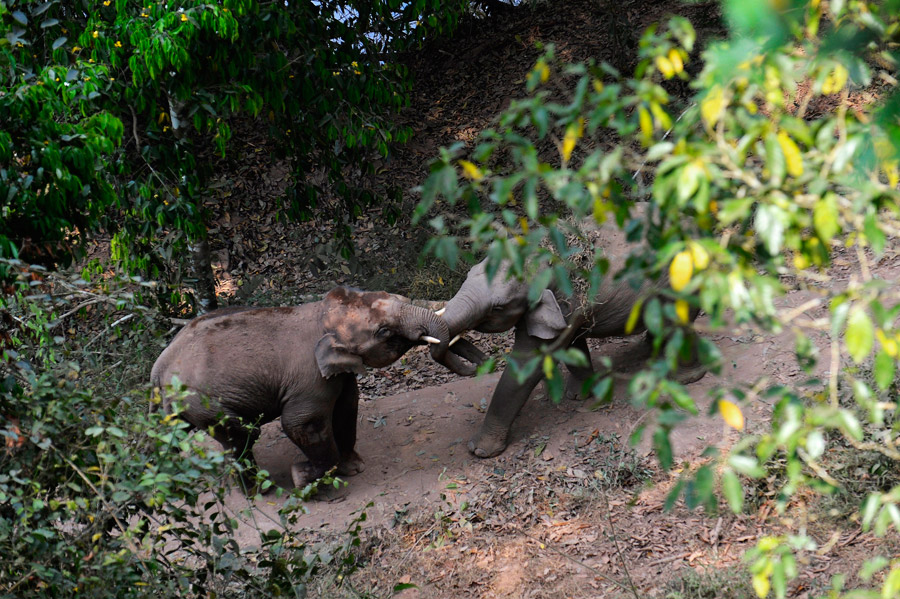Ailing elephants pose huge test for veterinarian in Yunnan
China Daily | Updated: 2018-05-31 10:01

Bao Mingwei treats "patients" more than 30 times his own size.
Bao, 39, is a veterinarian for wild elephants at the Asian Elephant Breeding and Rescue Center in Xishuangbanna National Nature Reserve in Yunnan province.
He has helped rescue more than 20 wild elephants in the past 18 years, 10 of which are still receiving medical treatment and rehabilitation at the center.
"Rescuing wild elephants is very difficult, as the animal is huge and can be aggressive and attack people sometimes," Bao said. "An adult Asian elephant weighs more than 2 metric tons."
When elephants in need of medical help are reported by local villagers, professional rescuers rush to the scene.
"Some elephants were injured in fights or falls from mountains, and some were abandoned by their herd due to congenital diseases such as heart problems," Bao said.
He said wild elephants are intelligent and leave sick herd members near villages on purpose, counting on humans to save them.
"Judging from their injuries and the situations on the ground, we deploy different rescue teams of about 60 people, sometimes even with a crane and a helicopter," Bao said. "In remote areas, we even have to pave the way to transport the animals."
Rescue work is even more difficult at night, he said, with the forests in utter darkness and rescuers having to work by flashlight.
Elephants that are only slightly injured are sent back to the forests soon after recovery, but those with serious conditions have to be treated at the center for a long time before being released.
"For every elephant at the center, we arrange two keepers to accompany them 24 hours a day," Bao said.
"They have to lead the elephants to the mountains every day for them to re-adapt to the wild."
Fresh bananas in hand, Bao feeds the rescued elephants while conducting daily checks on their teeth and mouths. He also takes their temperatures and checks their excrement to ensure the animals are healthy.
"Every six months, we do a thorough physical examination on those elephants," he said. "Just like little kids, some elephants don't like doctors because we give them injections when they are sick."
Wild Asian elephants are mainly scattered in three prefectures in Yunnan, with Xishuangbanna home to the biggest elephant population.
The animals are under class A protection in China and are included on the International Union for Conservation of Nature's red list of threatened species.
"Enhanced protection for wild animals has led to a rise in the number of the mammals in recent years," Bao said. "In the 1990s, there were only about 170 wild Asian elephants living in China."
It is estimated that the population has since risen to around 300. In March, a group of more than 50 was spotted in the nature reserve's Wild Elephant Valley.
The 340-hectare valley is a scenic area where elephants often roam. It was opened in 1990 at a cost of 150 million yuan ($23.5 million).
The breeding and rescue center, established there in 2008, has seen five elephants born so far.
Bao started working at Wild Elephant Valley in 2000 after graduating from Yunnan Animal Science and Veterinary Institute. He now has five students and has written eight academic papers about wild elephants.
But he stresses the need for more "elephant doctors".
"In China, there are fewer than 10 professional elephant doctors," Bao said. "Protection and rescue can be better achieved with more people devoted to the field."
Xinhua
























